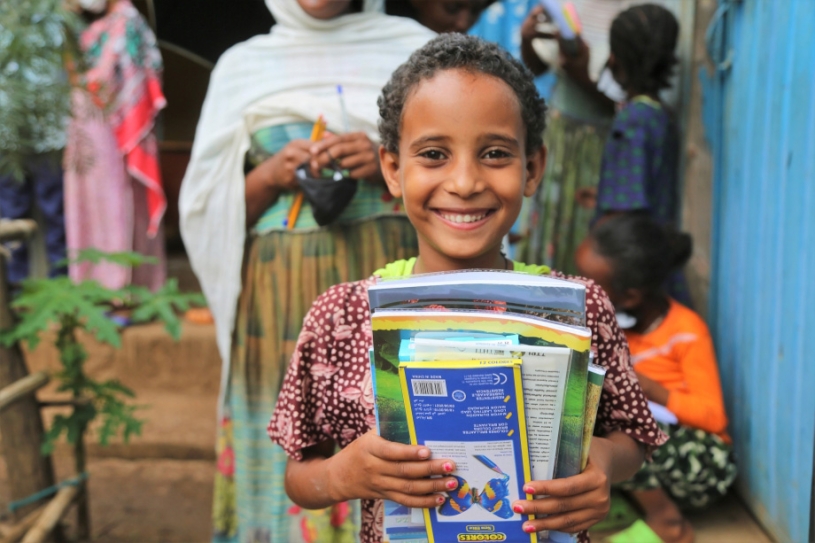PlayMatters launches new $15 million Ethiopia Emergency Response Mechanism
Funding will increase access to quality education, health, sanitation, hygiene, and protection services for children affected by conflict and disaster.
May 27, 2022

To respond to emerging needs, the PlayMatters project is allocating US $15 million of its existing US $100 million to the PlayMatters Ethiopia Emergency Response Mechanism (PM ERM), which will increase access to quality education in emerging crises for refugees, IDPs, and host community children and their families affected by disaster and/or conflict. It aims to complement other existing emergency response funds in Ethiopia to ensure the safety and health of disaster-affected populations through rapid and equitable emergency response. The emergency response mechanism will deliver a coordinated, rapid, and effective humanitarian response to the needs of children focused on their health, safety, and educational well-being.
Working with partners
The emergency response mechanism will offer the funds and in-kind materials to local and international NGOs that have demonstrated success of carrying out emergency interventions through a sub-granting process.
Through these partnerships, PlayMatters seeks to Improve the conditions of schools through supplementary activities in Education In Emergencies, Health and Nutrition, Water, Sanitation, and Hygiene while promoting wellbeing In schools/education sites. Here are more details:
- Increased access to quality education services during emergencies
Children affected by crisis have a right to quality education services. This output seeks to minimize the impact of crises on children’s learning by promoting child-friendly learning environments. This is through the distribution of learning supplies, supporting school feeding programs, and training teachers and parents on learning through play pedagogies. The output will also ensure that school environments are safe and friendly for children by rehabilitating and furnishing schools as well as providing age-appropriate materials and equipment needed for children's learning.
- Improved access to child-friendly water, sanitation, and hygiene services
Ensuring access to clean water, adequate sanitation, and hygiene during emergencies is important. This output will improve access to child-friendly and safe hygiene practices for school children through supplying water, providing basic sanitation services, and promoting safe hygiene practices in schools.
- Improved access to health and nutrition services
Emergency crises are often characterized by disruption and limited access to essential health and nutrition services. This output will improve access to these services by providing biannual deworming and micronutrient supplements, and conducting mass vaccination campaigns for vaccine-preventable disease. It will also identify and provide referral services for malnourished children through mass screening in schools, and promote awareness of health and nutrition among parents, children and teachers.
- Promoting wellbeing among families
This output will improve the psychosocial well-being of children and parents by supporting regular age and gender-sensitive recreational activities. It will sensitize parents and teachers on child psychosocial distress, and provide case management services for vulnerable and at-risk school children. It will also provide community-based mental health services, support the reunification of unaccompanied and separated children, and provide psychosocial and child protection services.
As PlayMatters is working to improve holistic learning and wellbeing of children using learning through play pedagogies, the project remains committed to meeting the immediate needs of children during emergency situations that may arise during implementation of the project.
2022 LEGO Idea conference
As part of activities to launch the emergency response mechanism, PlayMatters will participate in the 2022 LEGO Idea conference from 7th-9th June In Billund, Denmark. The conference unites partners who are committed to taking playful learning beyond the classroom and working together to transform learning systems. PlayMatters will present a humanitarian needs assessment game based on the emergency response mechanism, which demonstrates how partners can come together to ensure children have safe and equitable access to ECD and primary schools in an ever-changing environment.
You can download resources about the game here: